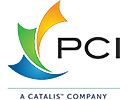Varicose veins are an usual condition that affects numerous individuals worldwide. While they are commonly viewed as a cosmetic problem, varicose capillaries can sometimes suggest a more serious underlying concern. In this write-up, we will certainly check out the danger variables and symptoms associated with varicose veins to help you comprehend when it is time to seek clinical attention.
What are Varicose Veins?
Varicose veins are enlarged, twisted blood vessels that typically show up on the legs. They take place when the valves within the capillaries end up being weak or harmed, creating blood to flow backward and swimming pool in the capillaries. This brings about the particular protruding and twisted appearance of varicose capillaries.
While any person can create varicose veins, certain aspects boost the likelihood of their event. Understanding these risk elements can assist you figure out if your varicose capillaries require medical focus.
Threat Elements for Varicose Veins
A number of variables contribute to the advancement of varicose blood vessels:
- Age: Varicose blood vessels are much more typical in older adults because of the natural deterioration of blood vessels gradually.
- Sex: Ladies are most likely to develop varicose capillaries, generally because of hormone modifications during pregnancy and menopause.
- Family Background: If your parents or grandparents had varicose capillaries, you have a greater danger of developing them.
- Obesity: Excess weight places additional pressure on the capillaries, making them much more prone to ending up being varicose.
- Sedentary Lifestyle: Absence of physical activity can compromise vein wall surfaces and hinder blood circulation.
- Occupation: Jobs that involve long term standing or sitting can increase the risk of varicose veins.
If you have several of these danger factors, it is essential to monitor your blood vessels for any kind of diaform indicators of varicose capillaries.
Signs of Varicose Veins
Varicose blood vessels are usually simple to identify, as they appear as bulging, twisted veins underneath the skin. Nevertheless, they can likewise trigger the adhering to symptoms:
- Aching or heaviness in the affected area
- Swelling, particularly after prolonged durations of standing or resting
- Burning or pain sensation in the legs
- Itching around the blood vessels
- Cramps or agitated legs, particularly at night
- Skin staining or abscess in serious cases
While these symptoms may not constantly indicate a major problem, it is essential to pay attention to them, especially if they intensify with time. Consistent discomfort, swelling, or skin modifications might represent an underlying issue that calls for medical focus.
When to Seek Clinical Focus
If you have varicose blood vessels with any one of the following signs or signs and symptoms, it is suggested to seek advice from a medical care specialist:
- Pain or discomfort that interferes with daily tasks
- Swelling or soreness in the damaged leg
- Open sores or ulcers on the leg
- Bleeding from the varicose veins
- Adjustments in skin structure, such as thickening or swelling
A clinical analysis can determine the intensity of your varicose capillaries and rule out any type of hidden problems that may need treatment.
Therapy Alternatives for Varicose Veins
Thankfully, several therapy alternatives are readily available for varicose capillaries, ranging from conventional measures to minimally invasive procedures:
- Lifestyle Adjustments: Normal workout, preserving a healthy weight, and elevating your legs can aid minimize signs and symptoms and protect against varicose blood vessels from worsening.
- Compression Stockings: These specifically created stockings use stress to the legs, promoting much better blood circulation and lowering pain.
- Sclerotherapy: An usual treatment for little varicose blood vessels and crawler blood vessels, sclerotherapy includes infusing a remedy right into the impacted capillaries, triggering them to shut and ultimately fade.
- Endovenous Laser Therapy (EVLT): This minimally invasive treatment utilizes laser power to seal off the impacted blood vessels, redirecting blood flow to much healthier capillaries.
- Surgical Interventions: In extreme instances, operations such as capillary stripping or ligation may be essential to get rid of or close off damaged capillaries.
Your healthcare provider will certainly analyze your condition and advise one of the most appropriate treatment alternative based on your private needs.
In Conclusion
While varicose blood vessels are typically safe, comprehending the threat elements and signs related to them is critical for identifying when medical attention is necessary. If you experience relentless pain, swelling, or various other worrying tonerin review signs and symptoms, consult a medical care specialist for an examination and proper treatment options. Keep in mind, early intervention can aid protect against complications and enhance your general lifestyle.
